Molenbeek: An Immigrant Community Tries to Shake Its Jihadi Reputation
Residents say its reputation is outdated and only furthers its marginalization.
— -- Within hours of the Nov. 13 attacks in Paris, much of the world’s attention -- and scrutiny -- turned to the small western district of Brussels known as Molenbeek.
Investigators had announced that three of the alleged attackers grew up in the impoverished district, and soon its cobblestone streets were filled with journalists and subjected to nightly police raids as authorities raced in an attempt to catch Salah Abdeslam, an alleged Paris attacker and Europe’s most wanted man who grew up in an apartment building just steps away from the Molenbeek mayor’s office.
Salah Abdeslam’s brother Brahim, the alleged suicide bomber who blew himself up outside a Parisian café, owned a bar in Molenbeek. Abdelhamid Abaaoud, the believed ringleader of the Paris attackers, who died in the Saint-Denis raid five days after the Paris attacks, also grew up in Molenbeek.
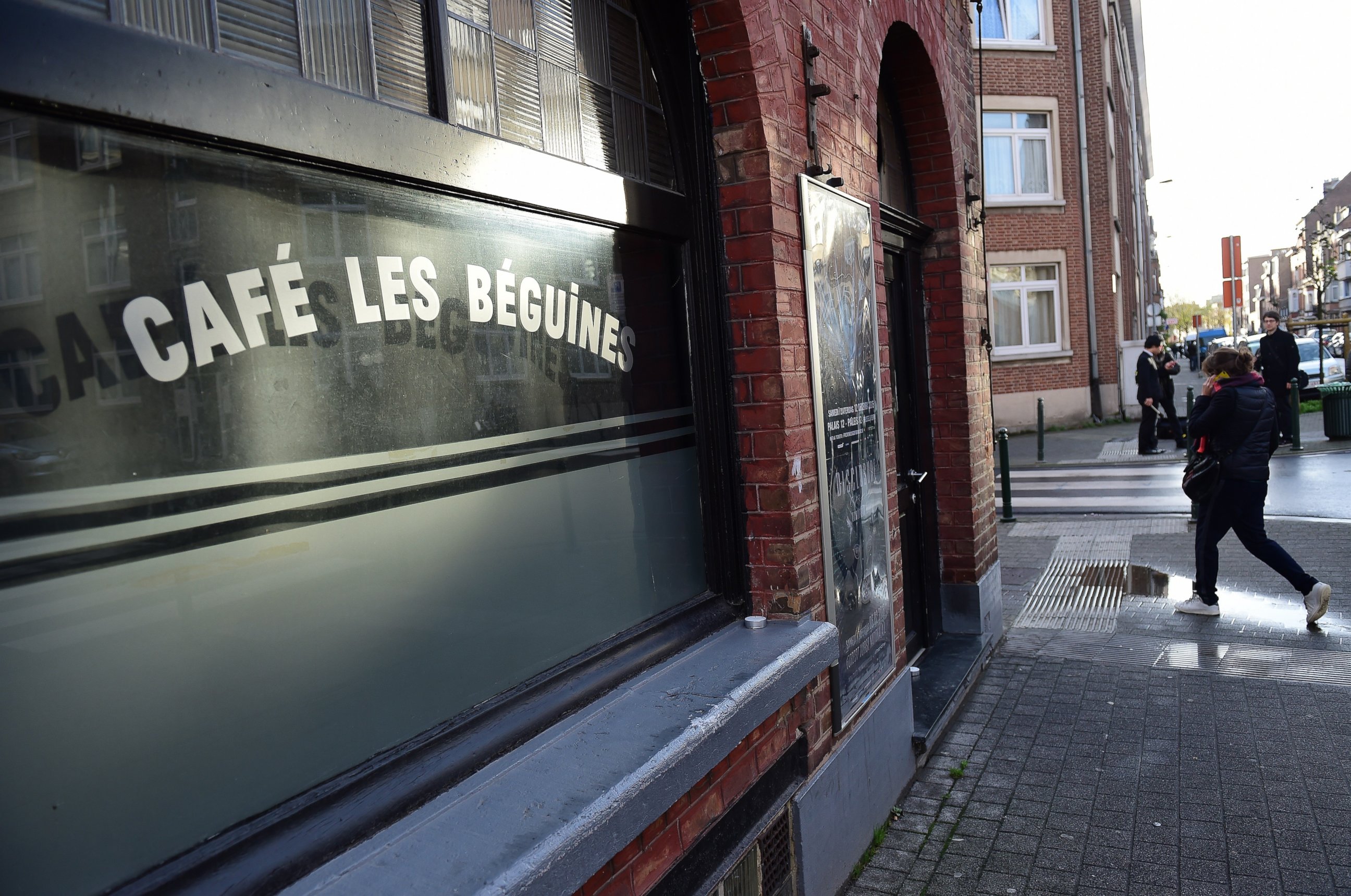
It was not the first time authorities have linked Molenbeek to terrorism. Several key events including the assassination of anti-Taliban leader Ahmad Shah Massoud in Afghanistan, the 2004 Madrid train bombings, last year’s killings at a Jewish Museum in Brussels, the Charlie Hebdo attacks and this summer’s foiled shooting on a high-speed train, have brought unwanted attention to the district. None of the suspected perpetrators of these attacks were actually born there and their connections to Molenbeek range from spending time in the district to having relatives in the area.
“Almost every time, there’s a link with Molenbeek,” Belgian Prime Minister Charles Michel said on Belgian television the Sunday after the Paris attacks. He added, “We’ve tried prevention. Now we’ll have to get repressive.”
Others have been less diplomatic in their indictments of the area. Jan Jambon, the Belgian interior minister, has said he wants to “wipe Molenbeek clean” and some in the French media have suggested that the French government should “bomb Molenbeek" instead of Syria or Iraq.
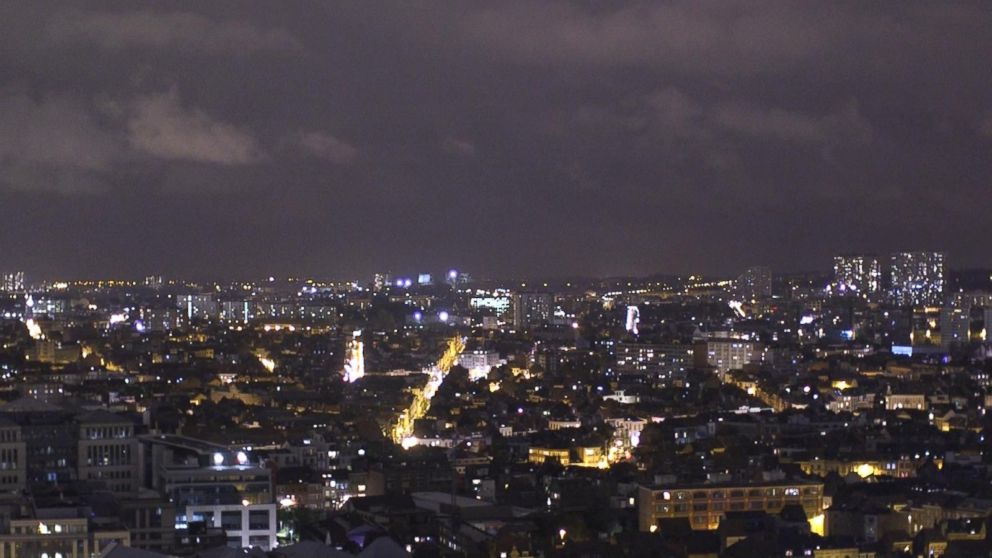
Even before the Paris attacks, Molenbeek had been called a decrepit slum, a police no-go zone run by Sharia law, and a breeding ground for terrorism. But residents argue many of its labels are largely outdated and are contributing to the systemic marginalization that’s plagued the district for decades.
“The population was very shocked by the murders in Paris,” Ahmed El Khannouss, Molenbeek’s deputy mayor, told ABC News. “But it was shocked a second time by its stigma. They have been pointed at as residents of a dangerous town which hosts terrorists, which is absolutely wrong."
Though it suffers from a high unemployment rate –- the youth jobless rate is nearly 50 percent -- and has been targeted by organized crime in the past, the area hardly fits the description of decrepit slum. Along with some half-finished buildings, Molenbeek is also home to stylish coffee shops, art galleries, dance studios, youth centers, a vibrant weekly market, halal butchers and dazzling architecture.
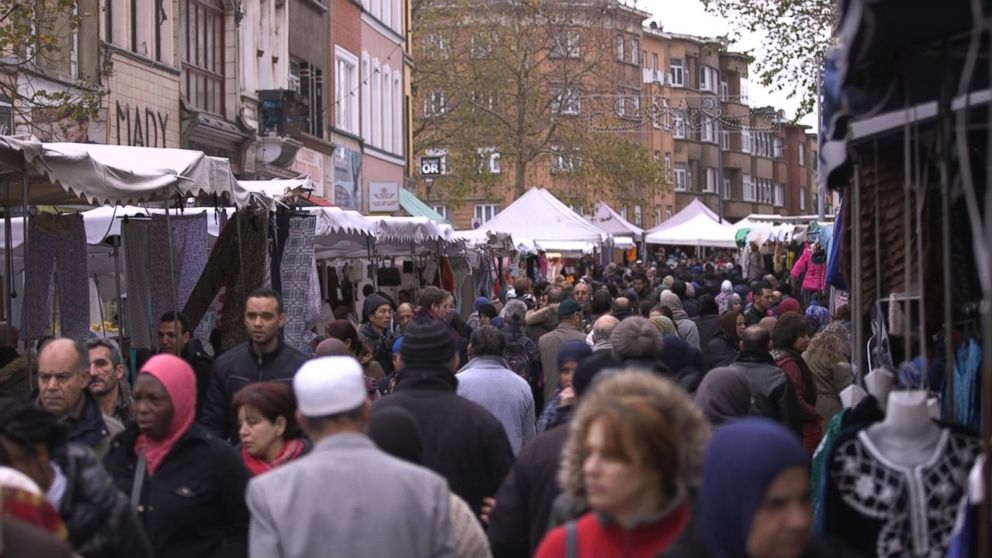
An estimated 40 percent of the population is Muslim, according to the deputy mayor’s Office, but there are no areas run by Sharia law as has been stated by various media outlets. Women can be seen driving cars and wearing whatever they like throughout the district, though it is fairly common to see them wearing traditional clothing.
Molenbeek was once one of Belgium’s major industrial hubs, known as “Little Manchester.” The demand for labor brought in thousands of immigrants, many of them Muslims from Morocco, but once industry largely left the area, its immigrant labor force struggled to adapt to the service economy that took its place. Youth often complain of not having enough opportunity in a society where racial discrimination in the labor market is already common.“There is significant ethno-stratification in Belgium,” a 2013 European Network Against Racism report read. The report claims that unemployment among African immigrants is close to 90 percent, even though 65 percent of these immigrants have university degrees.
Some experts have argued that Belgium’s fragmented society, divided into the Dutch speaking Flemings and the French speaking Walloons, has allowed immigrant communities like Molenbeek to slip through the cracks of both social services and security agencies.
There are a total of six Belgian governments: a federal government, a Flemish government of the Flanders region, a government of the French community, a government of the German speaking community, a government of the Walloon region and a government of the Brussels-capital region. The partitioned system reflects upon local authorities where fierce rivalries between mayors can result in a lack of communication between city districts -- a particularly vulnerable trait for intelligence agencies seeking to identify potential terrorist threats.
As a result, Belgium is often considered the weak link in the international surveillance community. Per capita, there are more Belgiums traveling as foreign fighters to Syria and Iraq than any other country, according to Pieter Van Ostaeyen, an Arab historian who tracks Belgians who join the radical group.
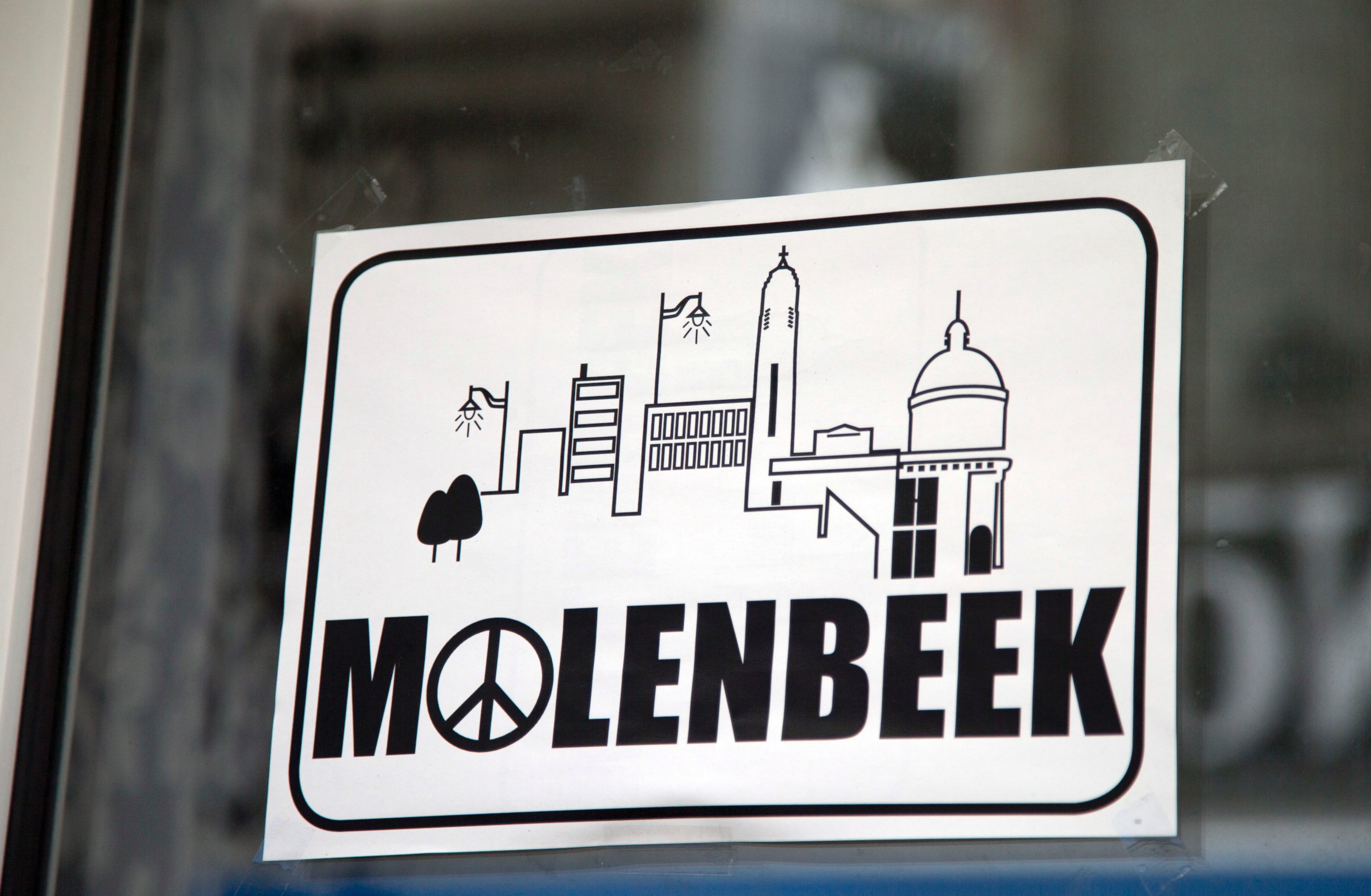
Twenty-four of the more than 500 Belgians believed to have left the country to fight for ISIS have links to Molenbeek, says Van Ostaeyen. He believes Molenbeek might provide a good hiding place for potential jihadists, but it would be a mistake to call it a breeding ground for terrorism, since those 24 represent a small fraction of Molenbeek’s 100,000 residents.
“Molenbeek is starting to be perceived as the core element of the problem,” Ostaeyen told ABC News.
“We do have some Salafi preachers in Molenbeek, but it's not like all the people of Molenbeek are hard core Islamists or jihadists,” he said before adding, “it’s a thriving community although it is quite poor indeed but it’s more of a socio-economic issue rather than an ideological one.”
In the 1970s, Saudi Arabia and other Persian Gulf states began setting up Wahabbist mosques in Molenbeek. Wahabbism, Saudi Arabia’s dominate faith for nearly two centuries, is an austere form of Islam that has fueled the rise of radical groups across the world, including ISIS. But the Belgian government doesn’t seem to mind Saudi Arabia’s growing influence in the region, since the Gulf nation accounted for no less than 29 percent of Belgium’s arms exports in 2011 (a total of 253.4 million euros), according to the Flemish Peace Institute.
Patrick Manghelinckx, the director of JES Youth Center which provides vocational training, language courses, and other services for disenfranchised youth in Molenbeek, often wonders why the government’s relationship to Saudi Arabia isn’t subject to the same scrutiny by authorities that his fellow Molenbeek residents face.
“Maybe the Belgian government and European governments should think about their relationship with Saudi Arabia,” Manghelinckx told ABC News.
“Because they are providing and financing a part of Islam that is very extreme and radical,” he said.
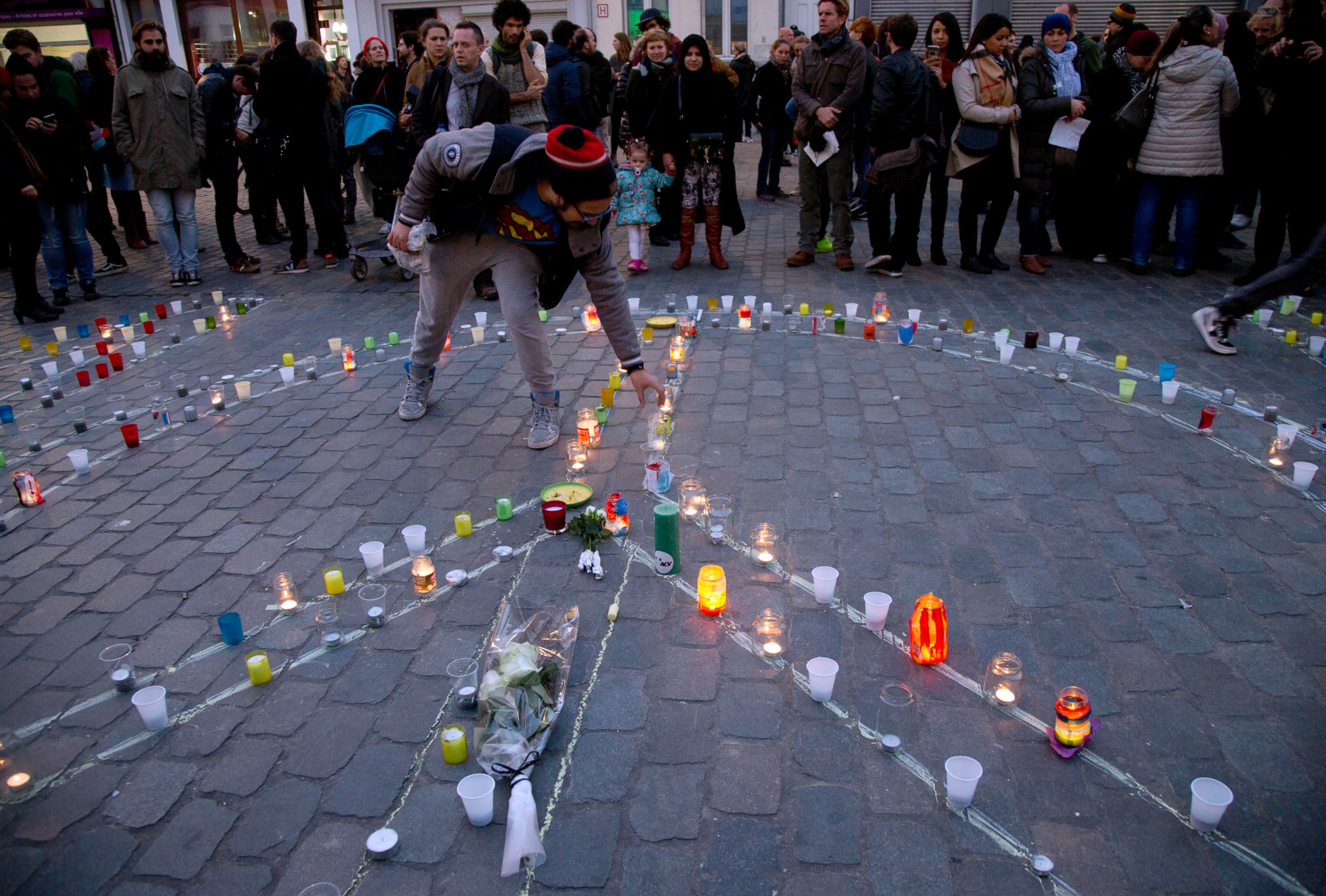
Manghelinckx was also quick to blame the media for propagating what he feels is an unfair portrait of Molenbeek.
“There are some young people who do not believe in the chances and opportunities that society gives them. Those are also some of the young people that go to small criminalities, activities in drug dealing, and some of them are becoming quite radical but a lot of the other young people do school activities and educational activities and a lot of them actually volunteer in their own communities,” Manghelinckx said.
“These days there are about 20 to 30 media crews running around this area but when things are good you see nobody. That’s unfair to the reality of this place and the people who live here,” he said.
Nabil Fallah, a 21-year-old Muslim university student who has lived his whole life in Molenbeek, has been volunteering in his community since he was 14 years old. In addition to coaching basketball and raising funds for cancer research, he and his friends organize a talent show every year for the youth of Molenbeek. Common acts include freestyle soccer, break dancing, rapping and singing.
“I want to show that my neighborhood, that my community is a good place,” Fallah told ABC News.
“Every time the media come to Molenbeek it is only for the negative things,” he said before adding, “but of the positive things you never see the media, even if you call them and say ‘the youth have organized a concert’ but you never heard about them.”
“That is why we will never have a better point in Molenbeek if we only show the negative points,” he added.
Five days after the Paris attacks, the Molenbeek community organized a vigil against violence in the main communal square. Hundreds of people gathered under the French flag hung from City Hall at half mast, while young volunteers drew chalk peace signs, assembled signs, and passed out hundreds of candles. Earlier in the day, organizers had placed white signs across town, proclaiming the neighborhood’s disdain for violence across the world.
Nearly every shop had one displayed in its window.
“What happened in Paris is awful,” Hassan Rihali, a community organizer who helped orchestrate the event, told ABC News.
“We really want our town to reflect something other than violence,” Mesraoui Fradila, who has lived in Molenbeek for more than 30 years and was excited about the vigil, told ABC News.
“Media haven’t always shown the positive side of Molenbeek, that’s why we reproach them. We don’t say there’s no difficulty here, but we really want to fight for a good change in our district,” Fradila said.
Khalii Kalil, a Molenbeek resident of more than forty years, was also thrilled to join the vigil but still worried about the future of his home district.
“I’m scared for the future of our children here,” he said. "With what happens, they might suffer the consequences."
Local documentarian Gisele Haaby contributed to this report.




